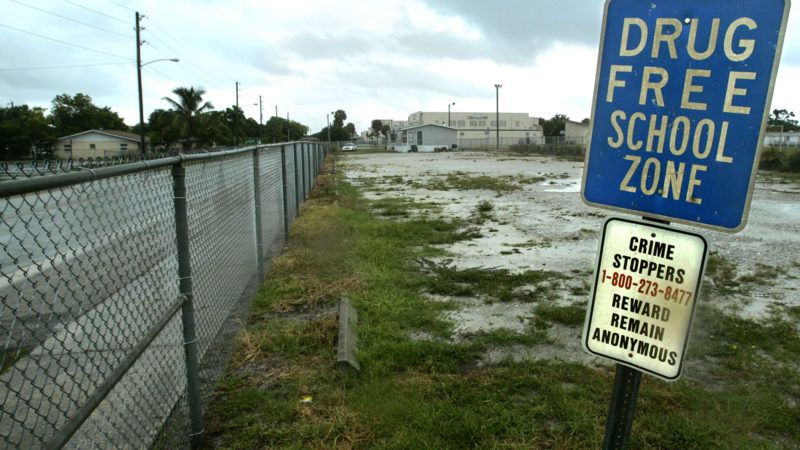Tennessee Governor Announces Fast-Track Clemency Process for People Serving Outdated Drug-Free School Zone Sentences
Following a 2017 Reason investigation, Tennessee reformed its harsh drug-free school zone laws. But hundreds were left in prison.

Tennessee Gov. Bill Lee announced this month that he was issuing grants of clemency to 17 people, one of whom had been imprisoned under a drug-free school zone law that has since been supplanted. The Republican governor also said that he's establishing a fast-track process for other offenders serving mandatory minimum sentences under the outdated school-zone law.
All 50 states have drug-free school zone laws that enhance penalties for drug offenses, but Tennessee's was among the harshest in the country. Under the old law, those zones covered large swaths of cities, extending 1,000 feet from every school, park, library, and day care. The zones covered 27 percent of Nashville and more than 38 percent of Memphis. They applied day and night, whether or not children were present. They applied in private residences, and when one was simply driving through the zone. As a 2017 Reason investigation showed, this meant minor drug crimes resulted in mandatory minimum prison sentences that rivaled—and sometimes exceeded—those for second-degree murder and rape.
The Tennessee legislature passed a bill last year reducing the size of these zones to 500 feet and requiring that the mandatory minimums be applied only if a defendant's conduct actually endangered children. But the new law was not retroactive, so hundreds of offenders were left to serve the remainder of their sentences.
Reason highlighted cases like Calvin Bryant's. Police arrested Bryant, a 20-year-old college student, in 2008 for selling 320 pills, mostly ecstasy, out of his Nashville apartment to a confidential informant. It was his first drug offense. Normally he would have faced at least two and a half years in prison. But because Bryant lived in a housing project within 1,000 feet of an elementary school, his sentence was automatically enhanced to 17 years, 15 of them mandatory. Bryant was released in 2018 after the local district attorney agreed not to oppose his appeal.
Criminal justice advocacy groups like FAMM, a nonprofit that opposes mandatory minimum sentences, have been pressing the governor's office and state legislature to grant relief to others still incarcerated under the state's old drug-free school zone laws. Among his clemency actions this month, the Gov. Lee commuted the sentence of Jamie Grimes, serving concurrent 30- and 25-year prison sentences for a drug-free school zone violation. Grimes is now eligible for parole.
FAMM chief Kevin Ring says he's "excited and encouraged" that the governor's office is taking action on the issue. That said, we don't know many details about this new fast-track process. "We're interested in learning more about what this process is going to look like," Ring says. "How fast is fast?"
According to Lee's office, 335 people are still incarcerated under the old version of the law.


Show Comments (11)